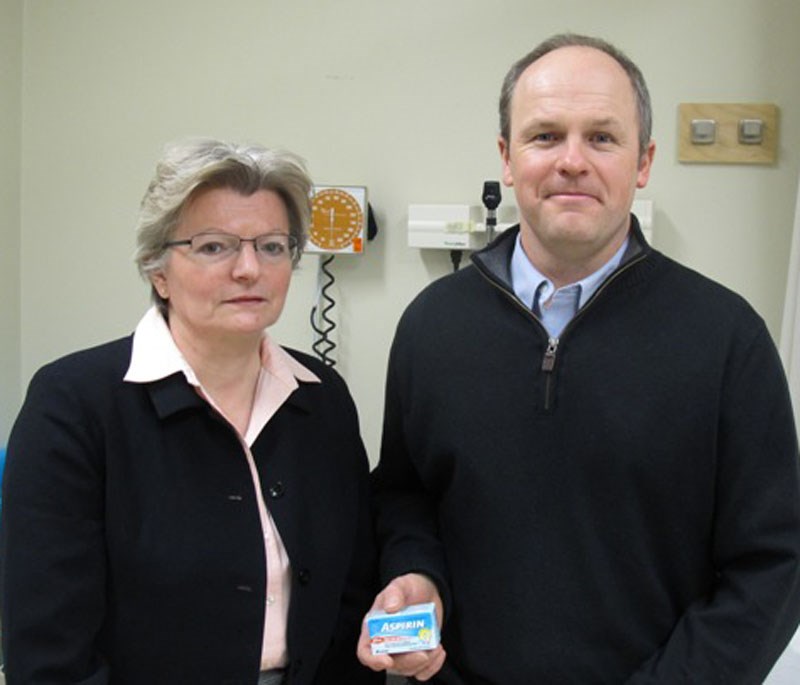Taking regular doses of Aspirin may not prevent death from heart attacks and strokes, and can carry some risks, shows a new study by the University of Alberta.
The study surveyed more than 800 patients from two Alberta family physician clinics, in Edmonton and Peace River.
All patients were over the age of 50.
Forty per cent of patients reported taking Aspirin regularly. Fifty-three per cent of them did so for primary prevention of cardiovascular diseases, while 47 per cent did so for secondary prevention.
“We are a bit concerned that only 47 per cent with cardiovascular disease were actually using Aspirin. The ones who are affected barely use it or use it less,” said Dr. Michael Kolber, associate professor in the department of family medicine at the University of Alberta.
“Maybe the number of Aspirin users is not completely inappropriate but it’s the wrong people using Aspirin,” he said.
Aspirin (acetylsalicylic acid or ASA) is commonly used to decrease the risk of cardiovascular events, and to fight headaches.
It prevents blood clots from forming in the body and was said to decrease the risk for heart attacks following a 1990s study of family physicians.
This led many people to take Aspirin on a daily basis.
Kolber said Aspirin is not proven to decrease the number of deaths from cardiovascular diseases, though it modestly decreases the chances for heart attacks in men and strokes in women.
He added that regular intake of Aspirin in people at risk is useful. The evidence is not as strong for people who do not suffer from health issues.
These people are more at risk of suffering side effects rather than preventing a heart attack.
“Worldwide, (Aspirin) is one of the most common reasons for admission to hospitals because so many people are taking it,” Kolber said.
“We do know that Aspirin has increased risk for gastro intestinal bleeds, some risk for brain bleeds.”
Of those surveyed, 62 per cent taking Aspirin for primary prevention did so upon advice of their family physicians.
Eight patients in the study indicated they experienced side effects and four of them said they continued to take Aspirin.
Kolber added that most patients believed the benefits of taking Aspirin outweighed the risks of possible side effects.
In the future, he sees a need for more education of both patients and family physicians about potential benefits and risks of aspirin use, and the greater promotion of its use among patients at risk of cardiovascular diseases.
The study was published in January in the Canadian Family Physician journal.




